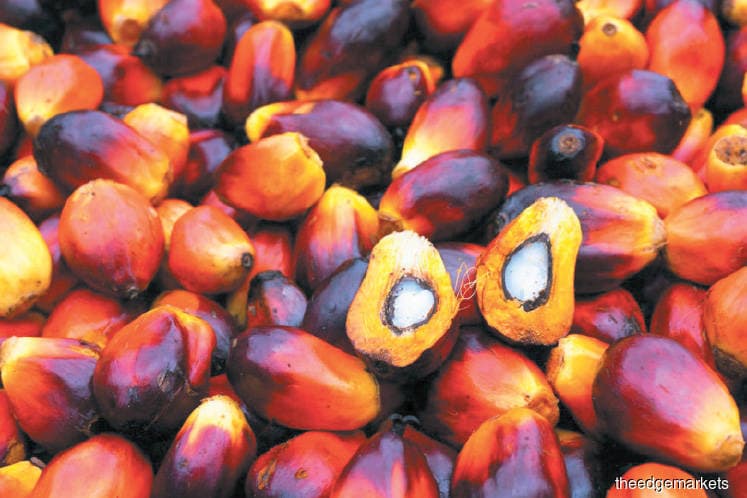
This article first appeared in The Edge Financial Daily on January 18, 2019
PUTRAJAYA: Palm oil industry experts mostly expect prices to be higher this year, citing the biodiesel mandate implementation, stronger demand from India and an El Nino impact as factors that could help lift the market.
Malaysian Palm Oil Board (MPOB) chairman Tan Sri Mohd Bakke Salleh, speaking at the annual Palm Oil Economic Review and Outlook Seminar yesterday, said he expects a turnaround in the industry in 2019, with the average price of crude palm oil (CPO) recovering to a level above RM2,500 a tonne.
MPOB director-general Datuk Ahmad Kushairi Din concurred. “I would say 2018 was challenging because of low production, low export, high stocks and low prices. This year, we predict it to be a better financial year for the palm oil industry. The CPO price for 2019 is expected to be firmer.”
Ahmad Kushairi said the firmer palm oil price would be influenced by the higher biodiesel blending mandate in both Malaysia and Indonesia, the weaker ringgit against the US dollar, stronger palm oil demand from major markets, and possibly an El Nino impact on palm oil production.
MPOB expects palm oil end-stocks to come off by 22.4% to 2.5 million tonnes in 2019, from its record high of 3.22 million tonnes last year.
Exports, which are forecast to improve 4.3% to 17.2 million tonnes in 2019, from 16.5 million tonnes shipped last year, could lift export revenue by 10.7% to RM75 billion, from the preliminary revenue of RM67.74 billion in 2018, said Ahmad Kushairi.
CIMB Research regional head of agribusiness Ivy Ng said the improvement will come from additional demand of palm oil as Indonesia and Malaysia push for the implementation of their biodiesel mandates, but also due to the expected rise in demand from India.
She said the recovery of palm demand in India is attributable to the Indian government’s import duty cut on CPO from 44% to 40%, and a 54% to 50% cut on the refined variety. India, the world’s largest importer of edible oils and Malaysia’s key export market, bought 2.51 million tonnes of Malaysian palm oil in 2018.
Ng observed a huge dip in market share of palm oil in India beginning March last year when the country raised import duties on crude and refined palm oil to the highest in over a decade, in a move to support local farmers.
The volume drop was because the duty hike had resulted in palm oil entering India at a premium of 15.4 percentage points against that of soybean oil. “But the competitiveness [of palm] has restored recently, from 15.4 to 5.5 percentage points thanks to the most recent revision [of the duty]. We expect palm demand to recover, especially sold from Malaysian refineries,” she said.
Demand for palm oil for biodiesel purposes could also add up to an additional demand of two million tonnes in both Indonesia and Malaysia, reducing stockpile by a huge amount, she added. Indonesia has enforced mandatory use of biodiesel containing 20% locally produced biofuel (B20), while Malaysia’s mandatory B10 programme will kick off at petrol stations by next month.
This, coupled with a possible formation of an El Nino, stockpile could come off and normalise by middle of this year, which will in turn lend support to higher CPO prices. The research firm is forecasting CPO prices to average at RM2,400 a tonne this year, said Ng.
However, Dr Julian Conway McGill, who is head of Southeast Asia at LMC International, adopts a relatively bearish stance as he sees no significant improvement in the current market oversupply in both Indonesia and Malaysia.
“Stocks will certainly come down, just because of the seasonality in production. But how quickly and how much? We are unfortunately quite bearish on this,” he said, adding that output is still expected to expand even if production slows in the coming months.
McGill said the biodiesel mandate implementation by the world’s two largest palm-producing countries is expected to only improve demand slightly, which means next year will still be a case of digesting an “awful lot of palm oil” in the market.
He is forecasting CPO prices to trade up to between RM2,200 and RM2,300 by June, “purely on the fact of seasonal lows”, but said prices may rebound beyond 2019 when stockpile normalises.
At yesterday’s close, the benchmark palm oil contract for April delivery was RM22 higher at RM2,197 a tonne. In 2018, the average CPO price declined nearly 20% or RM551 to RM2,232 — a four-year low — from RM2,783 in 2017, data compiled by the primary industries ministry shows.